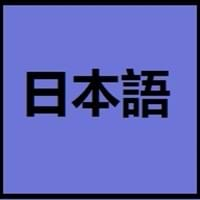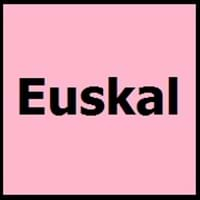Japanese vs Basque
Countries
Japan
Basque Autonomous Community, Navarre
National Language
Japan
France, Spain
Second Language
Not spoken in any of the countries
Not spoken in any of the countries
Speaking Continents
Asia, Pacific
Asia, Europe
Minority Language
Palau
Not spoken in any of the countries
Regulated By
Agency for Cultural Affairs (文化庁) at the Ministry of Education
Euskaltzaindia, National Languages Committee
Interesting Facts
- In Japanese Language, there are 4 different ways to address people: kun, chan, san and sama.
- There are many words in Japanese language which end with vowel letter, which determines the structure and rhythm of Japanese.
- The Basque language is the oldest European language.
- Basque alphabet include many Roman letters.
Similar To
Korean Language
Spanish
Derived From
Not Available
Not Available
Alphabets in
Japanese-Alphabets.jpg#200
Basque-Alphabets.jpg#200
Writing Direction
Left-To-Right, Horizontal, Top-To-Bottom
Not Available
Hello
こんにちは (Kon'nichiwa)
Kaixo
Thank You
ありがとう (Arigatō)
Eskerrik asko
How Are You?
お元気ですか (O genki desu ka?)
Zer moduz?
Good Night
おやすみなさい (Oyasuminasai)
Gabon
Good Evening
こんばんは (Konbanwa)
Arratsalde on
Good Afternoon
こんにちは (Konnichiwa!)
Arratsalde on
Good Morning
おはよう (Ohayō)
Egun on
Please
お願いします (Onegaishimasu)
Mesedez
Sorry
ごめんなさい (Gomen'nasai)
Barkatu
Bye
さようなら (Sayōnara)
Agur
I Love You
愛しています (Aishiteimasu)
Maite zaitut
Excuse Me
すみません (Sumimasen)
Barkatu
Dialect 1
Sanuki
Navarro-Lapurdian
Where They Speak
Kagawa
France
Dialect 2
Hakata
Souletin
Where They Speak
Fukuoka
France, Soule, Spain
How Many People Speak
Not Available
Dialect 3
Kansai
Biscayan
Where They Speak
kansai
Spain
Speaking Population
Not Available
Native Name
日本語
Not available
Alternative Names
Not Available
Euskara, Euskera, Vascuense
French Name
japonais
basque
German Name
Japanisch
Baskisch
Pronunciation
/nihoɴɡo/: [nihõŋɡo], [nihõŋŋo]
Not Available
Ethnicity
Japanese (Yamato)
Basque people
Language Family
Japonic Family
Vasconic Family
Subgroup
Not Available
Not Available
Branch
Not Available
Not Available
Early Forms
Old Japanese, Early Middle Japanese, Late Middle Japanese and Early Modern Japanese
Proto-Basque, Aquitanian
Standard Forms
Japanese
Basque
Language Position
Not Available
Signed Forms
Signed Japanese
Not Available
Scope
Individual
Not Available
ISO 639 6
Not Available
Not Available
Glottocode
nucl1643
basq1248
Linguasphere
45-CAA-a
40-AAA-a
Language Type
Living
Not Available
Language Linguistic Typology
Subject-Object-Verb
Subject-Object-Verb
Language Morphological Typology
Agglutinative, Synthetic
Agglutinative
Japanese and Basque Language History
Comparison of Japanese vs Basque language history gives us differences between origin of Japanese and Basque language. History of Japanese language states that this language originated in 1185 whereas history of Basque language states that this language originated in c. 1000. Family of the language also forms a part of history of that language. More on language families of these languages can be found out on Japanese and Basque Language History.
Japanese and Basque Greetings
People around the world use different languages to interact with each other. Even if we cannot communicate fluently in any language, it will always be beneficial to know about some of the common greetings or phrases from that language. This is where Japanese and Basque greetings helps you to understand basic phrases in Japanese and Basque language. Japanese word for "Hello" is こんにちは (Kon'nichiwa) or Basque word for "Thank You" is Eskerrik asko. Find more of such common Japanese Greetings and Basque Greetings. These greetings will help you to be more confident when conversing with natives that speak these languages.
Japanese vs Basque Difficulty
The Japanese vs Basque difficulty level basically depends on the number of Japanese Alphabets and Basque Alphabets. Also the number of vowels and consonants in the language plays an important role in deciding the difficulty level of that language. The important points to be considered when we compare Japanese and Basque are the origin, speaking countries, language family, different greetings, speaking population of these languages. Want to know in Japanese and Basque, which language is harder to learn? Time required to learn Japanese is 88 weeks while to learn Basque time required is 88 weeks.





